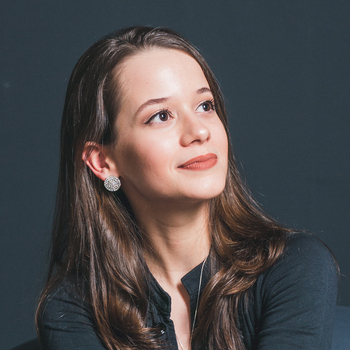
Steer a small startup or lead a team in a big unicorn? Gustavo Vedotti, Product Manager at VTEX, explains the main differences and similarities between these two professional experiences.
Life keeps surprising plans in store for us. I’ve always worked with technology and ecommerce. I was a software engineer for many years, and the thought of becoming an entrepreneur never crossed my mind. However, certain “details,” or rather, little decisions and big risks, led me to launch my first company in 2010.
Throughout this entrepreneurial journey, new “chances” kept arising. In 2016, life unfolded, connecting a few things along the way, and Biggy was born, the startup I helped create, where I was in charge of product. In 2019, we were purchased by VTEX, and, currently, I am leading the Search & Personalization team.
Looking back, the decisions we made seem obvious since every step led us perfectly to this “happy ending.” But I remember that reality seemed very different. No matter how much we trust our decisions, there is no stability. And before we get it right, we have to try, make mistakes, learn, and adjust along the way. “The best way to predict the future is to create it,” said Peter Drucker. I’ve learned this in practice while managing my business, and that’s how I now see the responsibility of product management, whether it be in a startup or a big company.
Is the daily routine very different?
Every line of work and every business has its own challenges and learning opportunities. I’ve worked both in small and big companies as an employee, but I’ve also experienced the other side, as an entrepreneur, where I was the one responsible for the company. In the end, the goal is the same: solving problems. You have to understand the problem, question it so as to deconstruct it, and only then find a solution, which may be wrong and need adjustment along the way.
Both in Biggy and in VTEX, my day-to-day job is to solve problems. Next, I’ll share some of the main differences about the type of problems or the challenges of the solution, when we compare a small startup to a big unicorn.
Resources and closeness to the customer
As it’s common for most small startups, our resources were extremely scarce. Biggy was working 100% on a bootstrapping model. We didn’t have any investors, and we used to joke that “we were selling our lunch so we could buy dinner.”
The lack of resources forced us to be very accurate when making decisions since each line of code, each action, each person in the team mattered a whole lot. Back then, I was responsible for defining the product, making the coffee, and supporting the end-user. Having this closeness with the customer is crucial because where the “gold” is – the best feedback on your product.
Even now, with more resources available, I stick to the same philosophy and attitude. I believe every Product Manager should do the same. Time and money should always be considered scarce resources, so a good strategy can be to act quickly in order to deliver a simple solution and then keep improving along the way.
Another fundamental point, both for a startup and a big unicorn, is to stay close to the customer at all times.
Communication
It’s a lot easier to keep everything aligned when you’re working with a handful of people. Usually, in startups, everyone works in the same room, so information is automatically spread through quick conversations. This helps keep everyone aligned and makes the daily workflow more agile.
I sat at the same desk with the engineers and the salespeople. That was very helpful because I managed to gather different perceptions on how the product was going and also I was able to visualize different paths we could follow according to the feedback. The only thing was that sometimes this setup caused a lot of noise in the team.
The bigger the company, the more complex communication becomes, and we need to be more careful in how we handle it. In particular, it’s crucial to be very specific with the message you want to convey because every word counts and should be well thought out.
Currently, we are over one thousand people working in different countries. My biggest challenge is to maintain good communication between my team, the people working with me, and our customers, always maintaining transparency and aligning expectations.
From product to feature
In the past 12 months, one of the biggest challenges I’ve faced working in a unicorn company is changing my perception on the scope and scalability of my work.
I remember very well a conversation with Geraldo, VTEX’s co-founder. He told me right in my first weeks within the company: “You are no longer a product. You have become a feature. You’re part of something bigger now.” This point is related to scope.
At the startup, my world was limited, just like the responsibilities related to the product I was offering. Today, I am part of something that directly affects other teams, and this generates a bigger learning opportunity, the kind that only a big company could offer.
One other thing I learned was scale. I went from approximately 50 customers in 4 years at Biggy to more than 500 in 12 months at VTEX. And I’m not only talking about scale in terms of technology, servers etc., but also to customer support, documentation, training, clients all over the world with different cultures and business challenges. All of that has an impact on the decision that will guide the product.
So, in the end, which one is best?
There are thousands of more differences when comparing a small startup to a big unicorn. However, I don’t see it in terms of right or wrong, better or worse. You can gain a lot of knowledge in either of them, both professionally and personally, but in different ways.
Maybe the secret lies in finding the balance. My grandmother used to say that “too much of anything is bad” regardless of the feeling, good or bad. Anything in excess is not good.
I think I’ve found that balance for now. I have the possibility to take on challenges that only a big company could face while applying the thinking model and the agility of a small startup. What has made that possible is both the experience I gained while working at Biggy and the culture I found at VTEX.
If this article made you think of new possibilities, explore the career opportunities offered by VTEX. Go to: careers.vtex.com
















